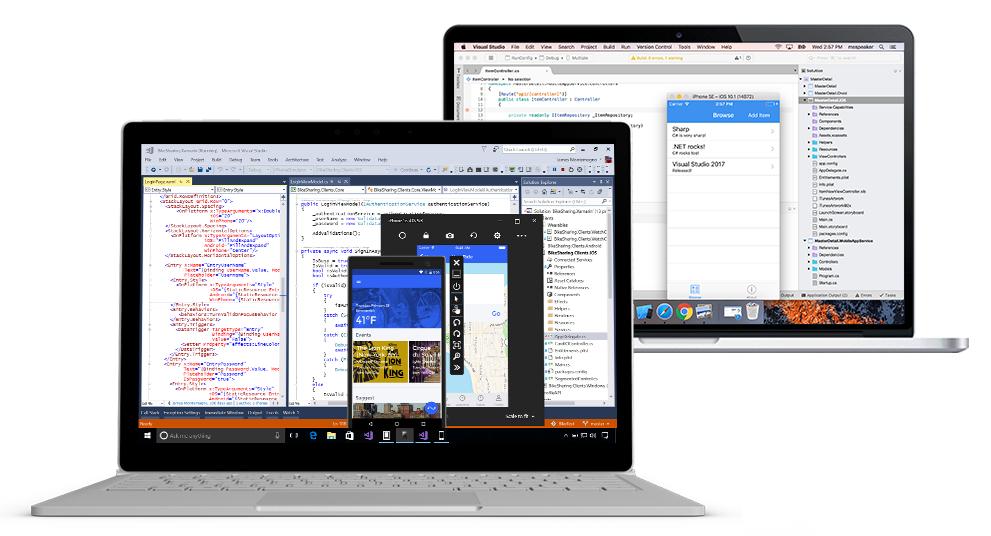
Microsoft released Visual Studio 2017 last week, and already the company is working on the Visual Studio 2017 Update Preview. The preview is meant to improve UWP tools so they support the upcoming Creators Update SDK, and add Python tools. Once the Creators Update SDK is released, the company will allow developers to enable side-by-side installation of the SDK in order to create production ready packages that target the SDK.
Other features include PackageReference support in UWP projects, new .NET native compiler distributed as a NuGet package, improved Visual Studio integration integration for XAML controls, support for detecting SDK version specific code, command line arguments in debug mode, and UWP streaming install support.
The full release notes are available here.
Windows Vista support is coming to an end
Microsoft also revealed it will soon end support for its operating system Windows Vista. Support will stop on April 11, 2017. After that time, users should not expect security updates, hot fixes, support options, or online technical content.
“Microsoft has provided support for Windows Vista for the past 10 years, but the time has come for us, along with our hardware and software partners, to invest our resources towards more recent technologies so that we can continue to deliver great new experiences,” Microsoft wrote in a statement.
Kinetise’s source code generator
Kinetise, a rapid development platform provider, recently launched a new platform that allows developers and users to create custom, advanced, feature-rich, performing native mobile apps that connects to any RESTful API from scratch without any coding. The company says this is different from other low-code or no coding tools because it provides more template-based apps.
Features include drag-and-drop editor, ability to download native source code, the ability to modify source code if needed, content presentation, maps, submitting data, user authentication, user roles, parameterized API-calls, GPS tracking, offline scenarios support, custom logic, and local variables.
Rust 1.16 released
The Rust team has announced the latest version of its systems programming language. Version 1.16 is now stable. The largest addition of the release is cargo check, a subcommand to accelerate the development workflow. In order to support cargo check, rustc — the aspect of the language that compiles the code — was updated to learn to emit the .rmeta file.
“This file will contain only the metadata about a particular crate. cargo check needs this for your dependencies, to let the compiler check types and such from them. It’s also useful for the Rust Language Server, and possibly more tools in the future,” the Rust core team wrote in a post.
Other improvements include the removal of a long-standing diagnostics, library stabilizations, and cargo features.
WebGL 2.0 available for Chrome users
WebGL 2.0 is currently available for Chrome users with modern graphics hardware on Windows, macOS, Linux, and coming soon, Android.
The WebGL JavaScript API exposes hardware-accelerated 3D graphics to the web, according to a Chromium blog, and Chrome 56 brings in support for WebGL 2.0, which is a major upgrade.
WebGL 2.0 comes with new capabilities, and is designed to make it easier to build 3D web apps with fast real-time rendering and reduced video memory consumption. Also, WebGL 2.0 introduces an expanded conformance test suite with over 340,000 test cases, according to the blog.
More information can be found here.





